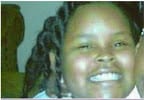Last year, media erupted with the story of a young girl declared brain dead after a botched tonsil surgery. Jahi McMath, a California teenager, underwent a procedure that tragically left her in a condition no one had foreseen. McMath was declared brain dead and subsequently even issued a death certificate, which her family now fights to revoke.
In the 1980s, brain death became synonymous – and contentiously so – with the actual death of a human being, and the definition of death no longer required the cessation of both cardiac and neurologic function. The more recent push has been to view cessation – or even mitigation, in some cases – of brain function serve as a stand-in for actual death. Although brain death is considered complete death in the global medical community and especially for the purpose of organ harvesting, no agreed-upon set of criteria for the determination of brain death exists or is used as standard. What is rendered dead or brain dead differs from hospital to hospital and even from doctor to doctor. So Jahi’s diagnosis of brain death—as should all such determinations—must be challenged, particularly since many allegedly brain dead patients manifest physiological functions to defy the ‘dead’ diagnosis—and indicating brain injured or disabled, but clearly not dead or brain dead.
This fight for the revocation of McMath’s death certificate is one in a grueling series of legal battles that McMath’s family has already fought on her behalf. Last year, they had to fight the hospital where Jahi’s surgery was botched, as this facility moved to withdraw her medical care and support. Jahi’s family was ripped from her bedside into court to petition the right to transfer Jahi to another hospital that would agree to provide Life-sustaining measures to Jahi until she recovered, improved, or until she did actually die.
The McMath case is as a striking example of the anti-Life nature of this trend to devalue minimally conscious patients. The young girl is alive and responds to her mother’s voice. Since being pronounced dead, her body has not decayed like an actual dead body would. And yet, bizarrely, her family is fighting a legal battle to have their daughter declared alive. Sadly, this is the plight of many families across the country. Texas, in fact, stands out as the most anti-Life state where denial-of-treatment and medical ethics issues are obscured by hospitals’ imperial authority over any unlucky patient who crosses the threshold. Jahi may have suffered a worse fate on Texas soil. Doctors are given unrestricted authority over the withdrawal and denial of medical treatment from their patients, even against the patient wishes or the wishes of their family and representatives.
Readers are perhaps remembering Terri Schiavo’s story now. Despite documented evidence that Schiavo was cognizant of her surroundings and responsive to those she loved, she was starved and dehydrated in an excruciating process of death that lasted for nine horrific days. Because Florida state law gave the power of life and death to Terri’s husband (who was already established with a new lover at the time of her death), Terri’s family and loved ones were powerless to intervene and save her life.
During legal proceedings to declare Jahi alive once again, the attorney for the McMath family intends to show video evidence of Jahi exhibiting responsiveness to her mother. These proceedings will take place Thursday, October 9.
Photo via Zennie Abraham/Flickr

